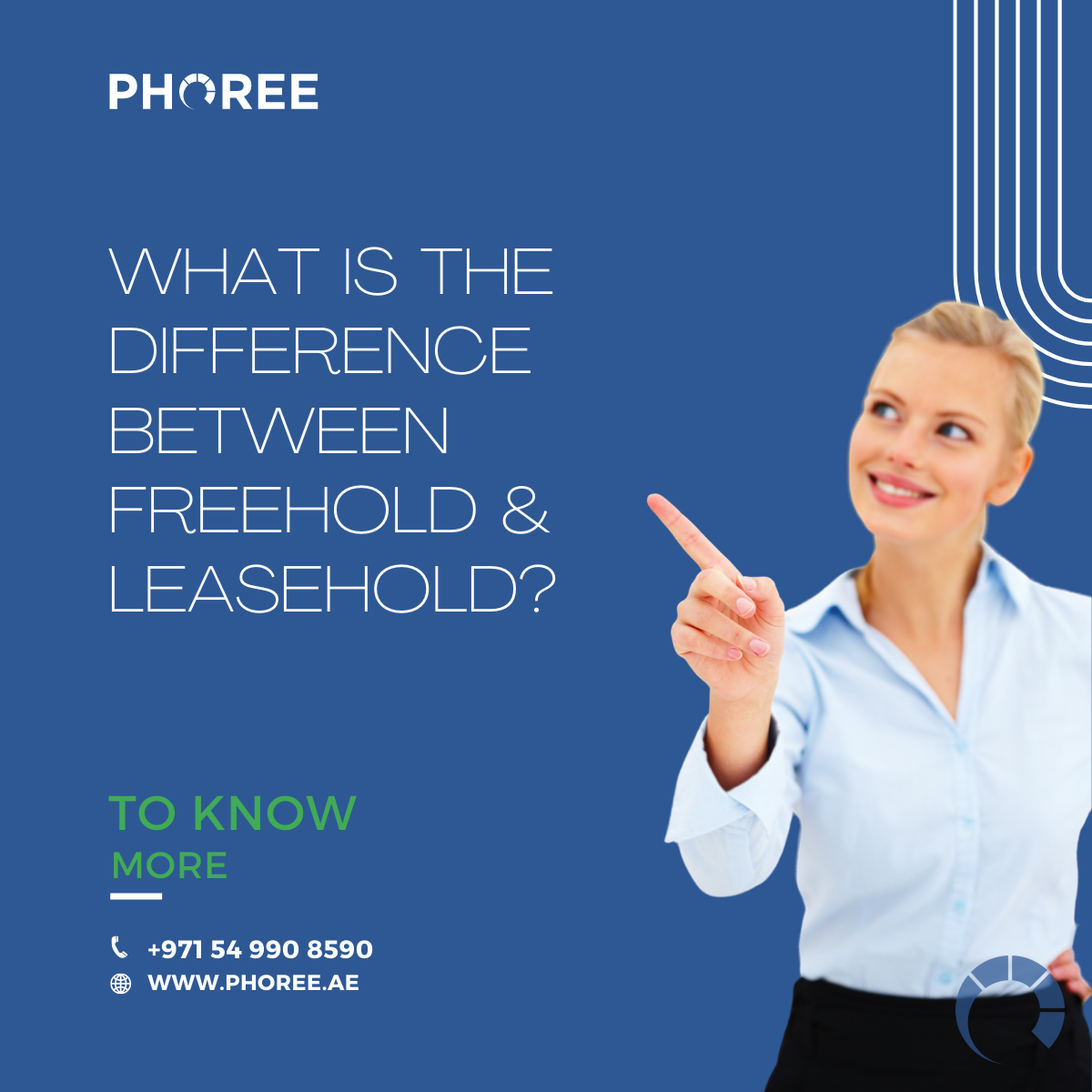
Understanding the Difference Between Freehold and Leasehold Properties in Dubai
Dubai's real estate market offers a plethora of investment opportunities, attracting both local and international buyers. When considering property ownership in Dubai, it's essential to understand the difference between freehold and leasehold properties. In this article, we will delve into the distinctions between these two ownership types, their advantages, and the factors to consider when choosing the right option for your investment.
Freehold Properties:
Freehold properties in Dubai allow the buyer to own the property outright, including the land it's built on. This ownership type grants investors full control over their property, the ability to make modifications, and the right to sell, lease, or transfer the property without any restrictions.
Advantages of Freehold Properties:
- Complete ownership of the property and land.
- The freedom to sell, lease, or modify the property without restrictions.
- Potential for long-term capital appreciation.
Leasehold Properties:
Leasehold properties, on the other hand, grant the buyer a long-term lease (usually between 10 and 99 years) from the property's freehold owner. In this arrangement, the leaseholder has the right to use and occupy the property for the lease's duration but does not own the land. Upon the lease's expiration, the property reverts to the freehold owner.
Advantages of Leasehold Properties:
- Lower initial investment compared to freehold properties.
- The lease can be extended or renewed upon agreement with the freehold owner.
- Leasehold properties are often located in prime areas of Dubai.
Factors to Consider:
When deciding between freehold and leasehold properties in Dubai, consider the following factors:
- Investment Goals: Freehold properties are ideal for long-term investments, while leasehold properties may be more suitable for short-to-medium-term investments.
- Budget: Leasehold properties often require a lower initial investment, making them more accessible for some investors.
- Location: Consider the property's location and its impact on your investment goals. Leasehold properties are often found in prime areas, while freehold properties may be located in newer developments.
- Future Plans: If you plan to sell or lease the property in the future, freehold ownership may be more advantageous due to fewer restrictions.
Understanding the difference between freehold and leasehold properties in Dubai is crucial for making an informed investment decision. Each ownership type has its advantages and suits different investment goals, budgets, and preferences. By considering these factors and working with experienced real estate agents, you can find the perfect property option to match your investment strategy in Dubai's thriving real estate market.
Related posts:
Unlock Dubai property investment for Pakistanis with PHOREE. Expert guidance on buying, visas, and high-yield opportunities. Invest in Dubai real estate from Pakistan.
Unlock Dubai property investment opportunities with PHOREE. Expert guidance, transparent pricing, and high returns. Invest in Dubai real estate with confidence.

